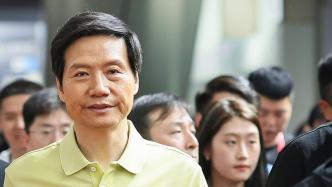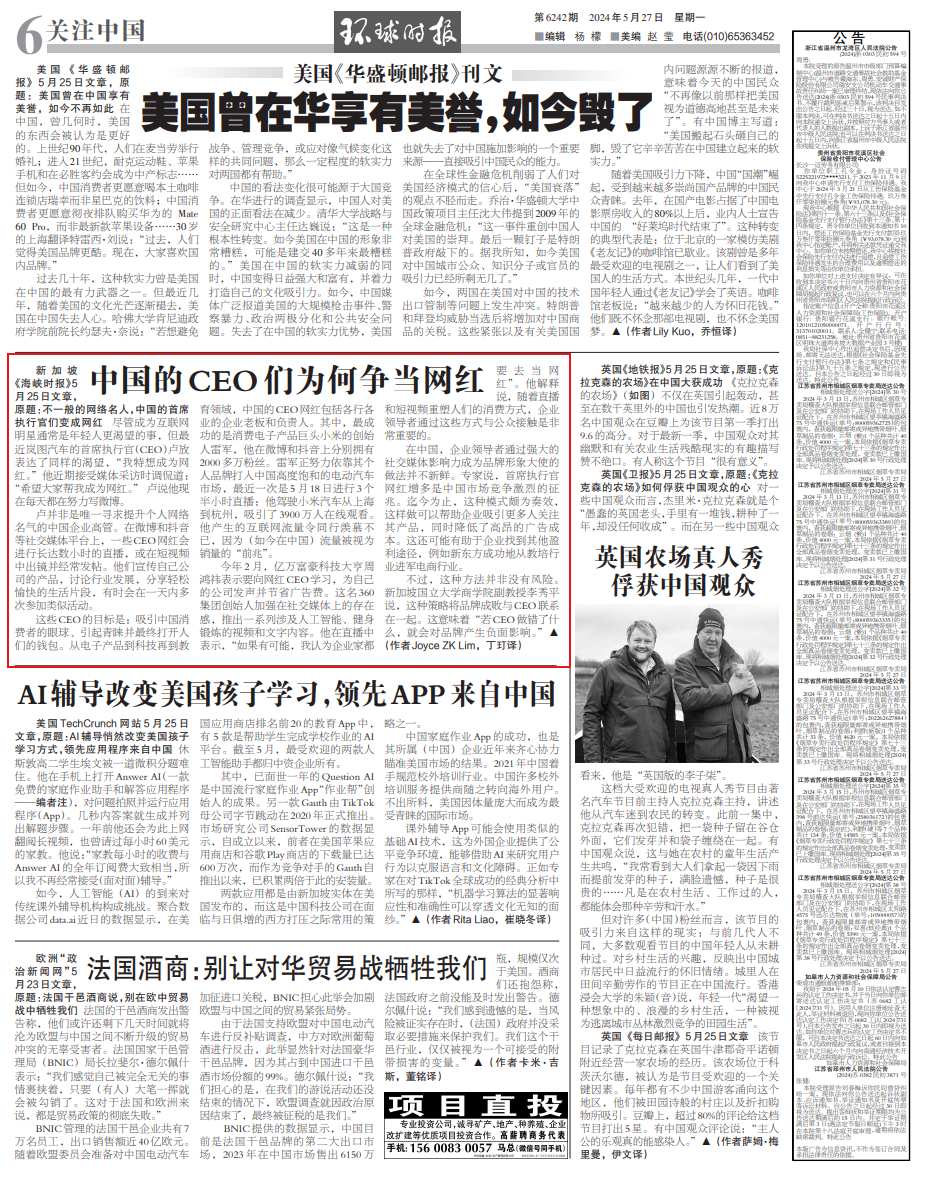
Unlike in the past when it was always a group of unknown young people who dreamed of becoming "Internet celebrities", nowadays, some successful Chinese corporate executives have also started live broadcasts to compete to become "Internet celebrities", which has attracted the attention of overseas media.
On May 25, Singapore’s Straits Times published an article written by Joyce ZK Lim titled “Unusual Internet Celebrities: China’s CEOs Become Internet Celebrities”.
The Global Times published a translation of this article on May 27, with the title changed to "Why Chinese CEOs are competing to become Internet celebrities."

The article points out that China's CEO influencers include business owners and heads of various industries, from electronics to technology to education. And the goal of these CEOs is to attract the attention of Chinese consumers, attract their favor and ultimately open their wallets.
The article lists four corporate executives: Lantu Auto's CEO Lu Fang, Xiaomi founder Lei Jun, billionaire tech tycoon Zhou Hongyi and New Oriental founder Yu Minhong.
"I really want to become an Internet celebrity." Recently, Lantu Auto's CEO Lu Fang expressed this desire. In a recent interview with the media, he joked: "I hope everyone can help me become an Internet celebrity." Lu Fang said that he is now working hard to write on Weibo every day.
Zhou Hongyi said he wanted to learn from internet celebrity CEOs to speak for his company and save advertising costs. The founder of 360 Group said in a live broadcast, "If possible, I think all entrepreneurs should become internet celebrities." He believes that as live broadcasts and short videos reshape the way people consume, it is very important for business leaders to reach out to the public through these means.
The article points out that among these CEOs who aspire to become "Internet celebrities", the most successful is Lei Jun, the founder of consumer electronics giant Xiaomi, who has more than 20 million followers on Weibo and Douyin respectively. The most recent one was a 3.5-hour live broadcast on May 18: he drove a Xiaomi car from Shanghai to Hangzhou, attracting 39 million people to watch online.
Lei Jun's efforts to become an Internet celebrity can be attributed to his efforts to rely on his personal brand to break into China's highly saturated electric vehicle market. The article points out that Lei Jun "generates Internet traffic that is the envy of his peers because (now in China) traffic is seen as a 'precursor' to sales."
The article quoted experts as saying that the increase in CEO influencers is a sign of fierce competition in the Chinese market. So far, this model has worked well, helping companies attract more attention to their products while reducing high advertising costs. It may also help companies find other ways to make profits, such as New Oriental's successful expansion from the education and training industry to the e-commerce industry.
But this approach is not without risk. Li Xiuping, an associate professor at the National University of Singapore Business School, said the strategy ties the success or failure of a brand to its CEO. This means that "if the CEO does something wrong, it will have a negative impact on the brand."